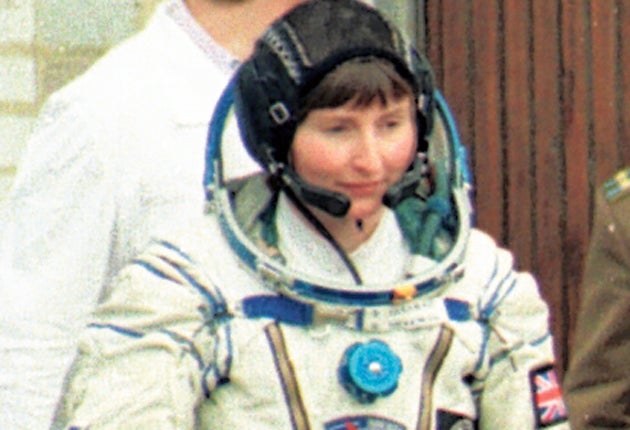Tim Peake: UK astronaut to follow pioneer Helen Sharman into space
Major Peake is the first British astronaut to go onto a publicly-funded mission to space, and the first to visit the International Space Station — but he’s not the first to fly under the British flag

Tim Peake is about to become the first publicy-funded Briton in space. But it’s a long time since the first British citizen went there.
While much of the hype around Major Peake’s mission has revolved around his being the first Brit in space, he is in fact only the first publicly-funded British astronaut, and the first to visit the International Space Station.
The first Briton in space was former chemist Helen Sharman who visited the Mir space station in May 1991. Her trip was made possible by a private programme called Project Juno, and paid for jointly by the USSR and a consortium of British companies.
Sheffield-born Dr Sharman joined the mission after answering an ad.
Other British astronauts have been into space since, but have done so through with other space agencies and have held duel citizenship.
For decades, Britain has had little to do with human missions. It instead chose to focus on unmanned operations, like satellites and robot probes.
Then, in 2012, Britain agreed to start contributing funds to Esa's ISS programme. It’s not clear whether there is any connection between Major Peake’s selection and Britain’s decision to start getting involved.
In 2013, Helen Sharman told The Independent that her advice to Major Peake was “to make sure you look out of the window occasionally”.
“It’s something no astronaut ever gets tired of doing,” Ms Sharman said in 2013.
“You get this constantly changing image of the Earth spinning below. You get these fabulous views and you get time to think about that. It will be something that will stay with him for the rest of his life,” she said.
Among the many items that Major Peake will be taking up with him is a book: Road to the Stars by Yuri Gagarin. That was given to him by Dr Sharman, who had taken it up into orbit in May 1991.
“Tim asked me if there was anything I had that I would like him to take,” Dr Sharman told The Guardian. “He wanted to make that link between me, the first Brit in space, and himself, the second. I have kept the book very safe for 24 years and now Tim is going to take it up to the international space station.”
Join our commenting forum
Join thought-provoking conversations, follow other Independent readers and see their replies
0Comments